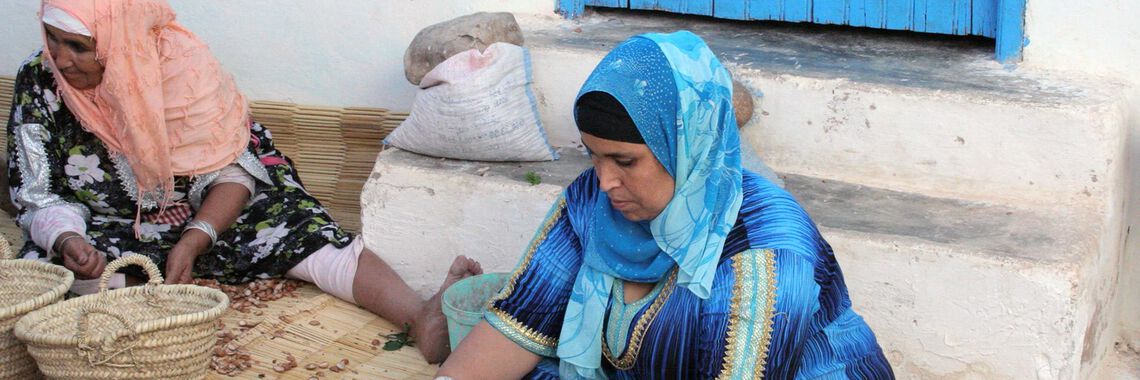P.D. Soros Fellowship for New Americans
If you are an applicant and need to sign into the online application, you can find the link on the "Apply" page of our website: Apply Page.
If you are a fellow looking to login, please note that we are currently updating our backend system for managing Fellow data. In the meantime, to update your information for the Fellowship, please send updates to Nikka Landau at nlandau@pdsoros.org.
Relentless Pursuit: Paul & Daisy Soros Fellows and the Entrepreneurial Spirit
I moved to California to attend graduate school at Stanford as a Paul & Daisy Soros Fellow. That opportunity initiated a career in Silicon Valley that led me to operational roles at Google, YouTube, and various venture-backed startups. Along the way, I worked in venture capital, where I had the privilege to see some of the world’s most inspirational company founders in action.
Business theorist Howard Stevenson defines entrepreneurship as “the relentless pursuit of opportunity beyond resources controlled.” The entrepreneur, however, is best characterized not in theory, but in practice. No two entrepreneurs are alike, but in my experience, the successful ones share three common traits. First, they are motivated to solve a problem that they have either experienced directly or understand deeply. Second, they augment their capabilities, oftentimes by building a team with complementary skills. Third, they align and focus resources to solve a well-defined and critical pain point.
The following profiles showcase six Paul & Daisy Soros Fellows who lead with entrepreneurial spirit. All of these founders embody the characteristics described above. For example, Jonas Ketterle (2008 Fellow) and Paola Prestini (1999 Fellow) draw direct inspiration for their ventures from their personal family stories. Zahir Dossa (2010 Fellow) complemented his skill set with the marketing know-how of another Fellow to brand his company. Connie Chen (2008 Fellow), Andrei Cherny (2000 Fellow), and Steph Speirs (2015 Fellow) are laser-focused on solving fundamental problems in health care delivery, personal finance, and the solar industry.
Transformative startup leaders imagine the world as they would like it, and then bring others along. Here are six Paul & Daisy Soros Fellows who are doing just that.
Introduction by Luis Garcia (2000 Fellow), startup operator in San Francisco
Firefly Chocolate
Founded by Jonas Ketterle (2008 Fellow)
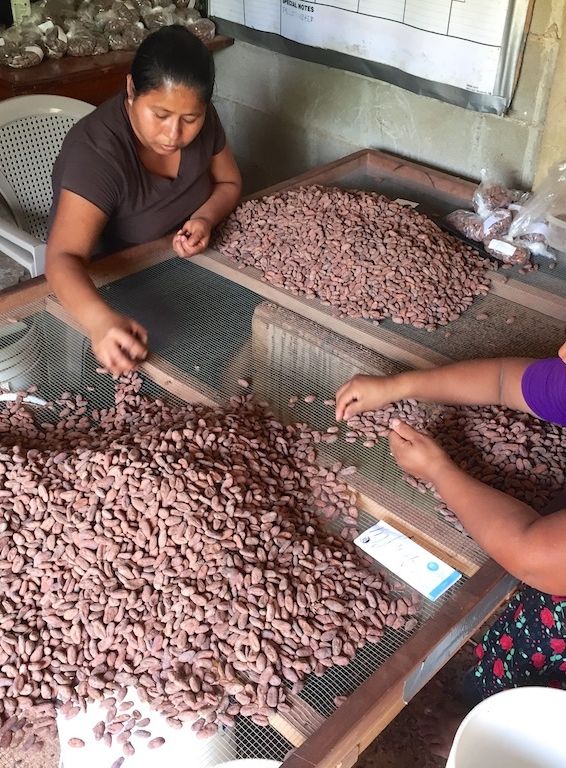
Inspecting premium cacao at Maya Mountain Cacao in Belize, 2015.
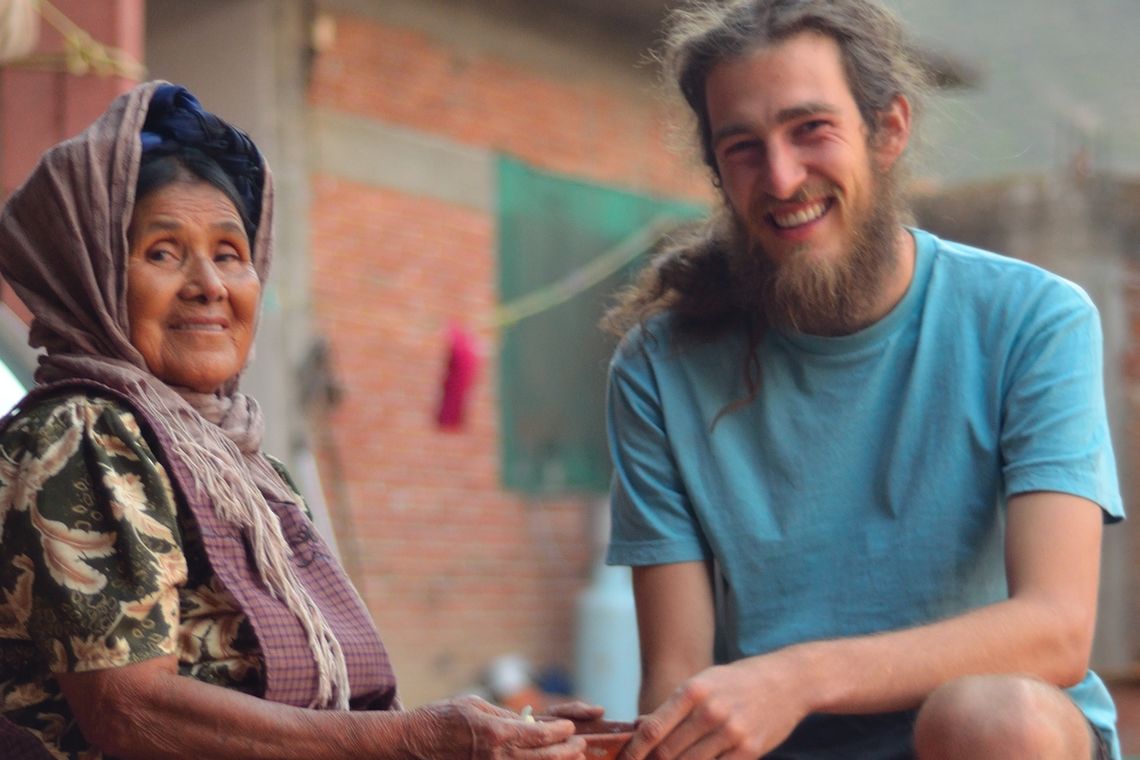
Maria first intoduced Jonas Ketterle to the chocolate-making tradition in Teotitlan del Valle, Mexico, 2012.
obsession with learning. When his family arrived in the United States, the plan was for a temporary stay, while Jonas’s father completed a postdoc. But as a foreigner in a new country, his father found opportunities to pursue his interests that led the family to place its roots down permanently.
“That’s something that’s really been reflected in my own path—working on things I’m passionate about,” Jonas says.
His mother influenced him, too, through her “environmentalist bend,” Jonas recalls. When she saw that Jonas’s elementary school didn’t recycle and used Styrofoam trays, she encouraged him to organize in an effort to change the policy. He remembers it as “training to see that just because it is done this way doesn’t mean it can’t change.”
Engineering appealed to him as a path to become a resourceful problem solver. This is the point that Jonas was at in 2007, pursuing a graduate degree in mechatronics at Stanford and applying for The Paul & Daisy Soros Fellowships for New Americans. That same year, his mother died by suicide. “It made me ask questions about everything,” Jonas says.
He put his degree on hold to go work. He then put his job on hold. In 2012, Jonas traveled to Oaxaca, Mexico, and a chance encounter with a rug salesman led to an invitation to a Zapotec village and an introduction to a woman who shared the best chocolate he had ever tasted, and introduced him to chocolate making.
Soon enough, his experiences would become the ingredients for Firefly Chocolate. Back at home, his engineering background helped him build and modify equipment for making chocolate, being inventive with materials like pieces of pipe from a hardware store and the speed control of a vacuum.
It was a hobby at the time, he says. “It was the hobby that satiated that need for a steep learning curve,” he explains.
Still reflecting on his mother’s death, Jonas saw the need for a more holistic suicide prevention program. “When I got back from Mexico, I was exploring our society’s response—or lack of response—to suicide,” he says.
It was when the mechanics and science of chocolate making and the social aspect of preventing suicide came together that put Jonas’s vision in focus. The chocolate bars he makes—“85 percent dark, beyond fair trade, bean to bar”—are good: “pure childhood fairy dust,” in the words of one reviewer.
From Jonas’s perspective, the success of a chocolate operation is a powerful tool to conversations between people, including conversations about suicide prevention. Chocolate is so socially accepted, Jonas says, that “it becomes a gateway to begin a conversation with someone. It’s an invitation
to connect.”
Article by Mariano Castillo (2008), editor for CNN
Aspiration
Founded by Andrei Cherny (2000 Fellow)
Andrei Cherny on the campaign trail with Barack Obama, 2008.
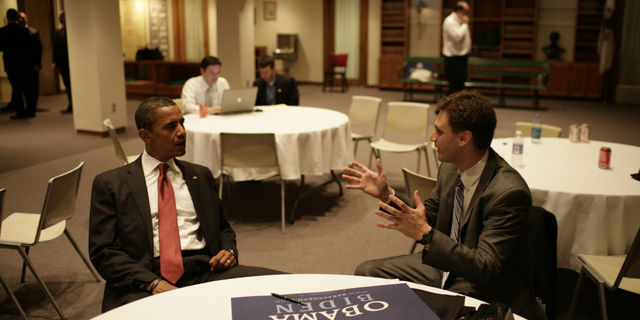
Do well. Do good. Those may seem like obvious words to live by, but for Andrei Cherny, they
are more than just a motto. He’s on a mission to achieve this for the middle class (and for all Americans), and if you’re determined to make the greatest impact possible, what better sector to do it in than the one with the most distrust and dissatisfaction: the finance industry—specifically, banks.
Skipping the brick and mortar of traditional banks, Aspiration, Andrei’s startup, offers a direct-to-consumer online and mobile investment product that is superior in every sense of the word. There are four key areas where Aspiration strives to differentiate itself today:
1. A revolutionary “pay what is fair” approach to fees that is built on—and builds—mutual
trust with customers.
2. A unique and differentiated brand identity marrying profit and purpose, including a commitment to donate ten percent of revenue to charitable causes.
3. Thoughtfully crafted investment funds, including socially conscious investments, access to privately held growth companies, and liquid alternatives that are created by experienced investors and available at a $500 minimum (unlike the tens of thousands needed for many traditional investments).
4. A humanized approach to financial education that combines storytelling with statistics.
Why is Andrei the right person to lead this charge? Born in Los Angeles to parents who had emigrated from Czechoslovakia three years earlier, he has advised some of America’s
top consumer brands, including Intel and Wells Fargo. He cofounded Democracy: A Journal
of Ideas, where he helped launch the fight for the landmark Consumer Financial Protection Bureau.
He was also a financial fraud prosecutor, best-selling author on technology and business, and the youngest White House speechwriter in American history. Finally, but perhaps most importantly, Andrei believes in service for the greater good and his country, which included a stint as an intelligence officer in the US Navy after 9/11.
Andrei isn’t aiming small. The total assets under management for the middle class is more than $19 trillion (not a typo) in their personal investment and retirement accounts. He believes he can build a multibillion-a year business and still do well and do good helping the middle class. I believe him.
Article by Zaw Thet (2003), founding partner of Signia Venture Partners
Solstice Initiative
Stephanie Speirs (2015 Fellow)
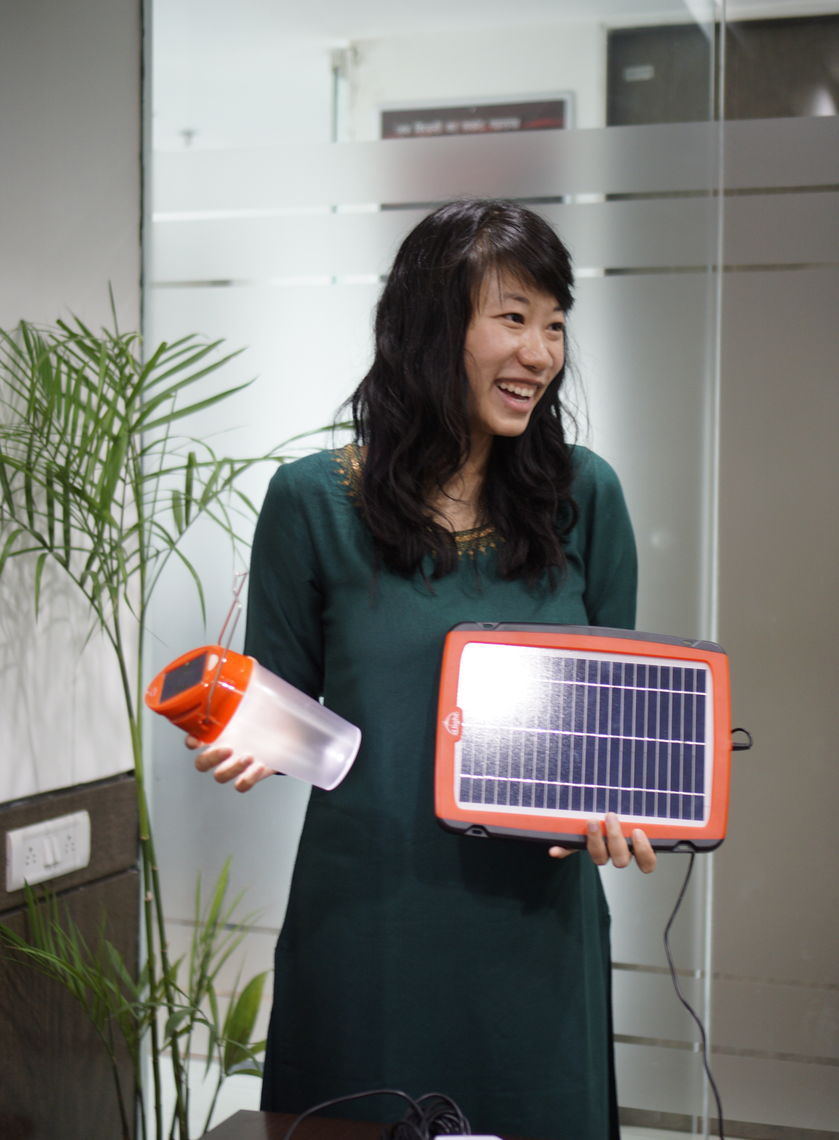
Steph Speirs (2015 Fellow) shows off a solar panel at an educational event.
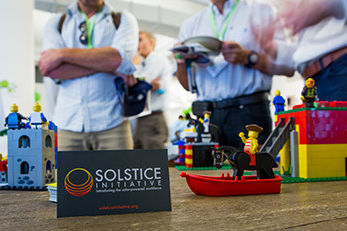
Steph Speirs (2015 Fellow) is working to connect 100,000 households in the United States to solar power in the next five to seven years.
shops where constituents can switch to solar. Households buy a portion of this shared off-site solar farm, saving money on their electric bills immediately and supporting clean energy in the process.
became particularly intrigued by the challenge of energy access while working as the youngest ever
director at the White House National Security Council. There, Steph focused on the Middle East during the Arab Spring and saw families waiting in line for fuel while she worked on large-scale policy questions centered on counterterrorism. She found herself pulled more and more to the day-to-day challenges that people in the region faced, and energy access stood out to her as the most
important for the economy and for individual living standards. Pursuing a public affair master’s at Princeton after the White House, Steph met her cofounder while working on a solar consulting project in India. Steph and her classmate Steve Moilanen witnessed solar proliferating in the most remote of Indian villages and decided they needed to help make solar back home more affordable and
accessible too. The idea for Solstice was born.
sources of revenue in order to reach impact at scale. It currently collects a referral fee from solar developers, who gain access to new customers because of Solstice’s community relationships, and Steph and her partners envision future additional revenue sources as they expand the organization.
training at MIT’s Sloan School of Management. Steph dreams of a day where every household in
the US can access solar energy. In the next five to seven years, she believes Solstice can begin to make a large dent by linking 100,000 households to solar energy, putting the idea of community solar firmly on the map.
Northwestern University
National Sawdust
Founded by Paola Prestini (1999 Fellow)
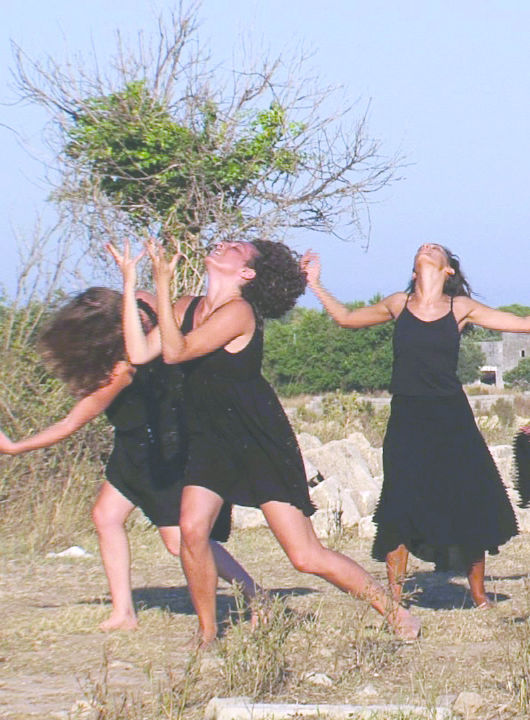
A still from the film portion of Paola Prestini's multimedia opera, Oceanic Verses, featuring Helga Davis who performed in the film and live on stage at The Barbican Centre and The Kennedy Center in 2012. Filmmaker: Ali Hossaini.
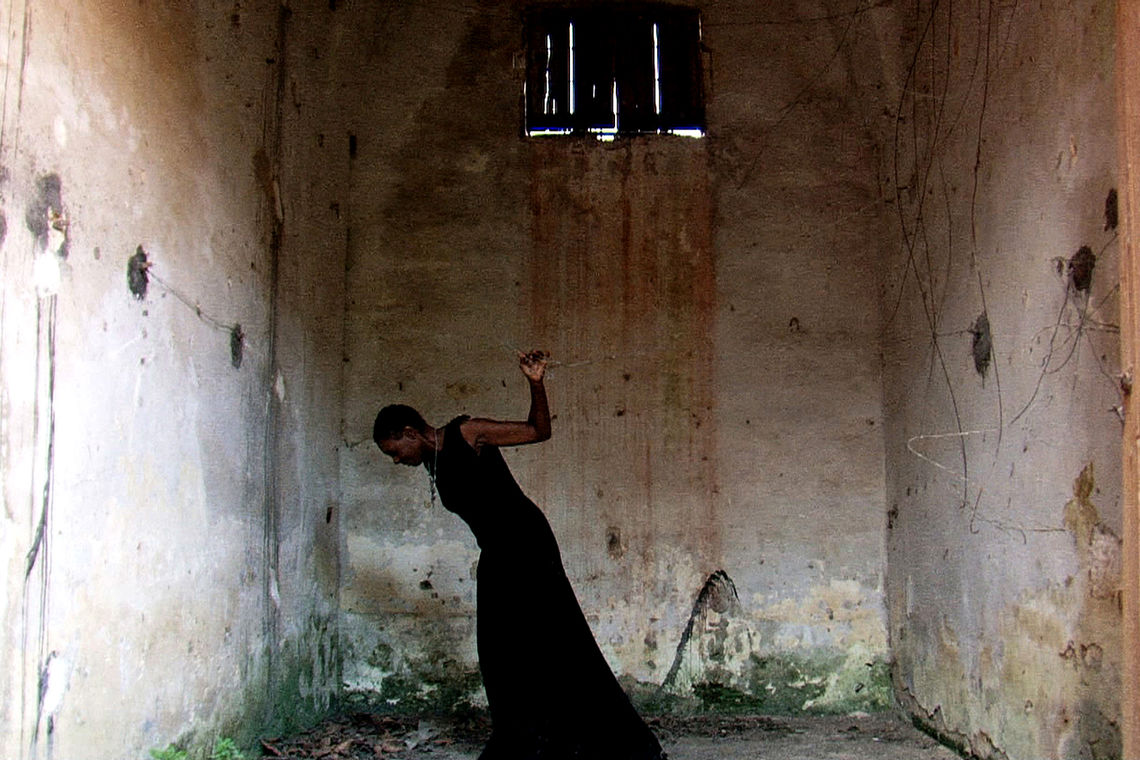
A still from the film portion of Paola Prestini's multimedia opera, Oceanic Verses. Filmmaker: Ali Hossaini.
“Thy tread is on an Empire’s dust.” Byron’s words, though about the Battle of Waterloo, seem to speak directly to Paola Prestini’s own remarkable journey as a composer and “creator, educator, performer, and entrepreneur.”
From her opera Oceanic Verses, which was inspired by ancient folk songs from her native Italy, to her current endeavor, National Sawdust, a new music center transformed from a century-old sawdust factory, Paola takes past and literal dust to build the extraordinary.
In October 2015, National Sawdust, where Paola is artistic and executive director, will open its doors to the public after six years of planning, construction, and hard work. The 13,000-square-foot space, in Williamsburg, Brooklyn, will be an artistic incubator, performance space, recording studio, restaurant, and bar.
In 2009, founder Kevin Dolan chose Paola for her artistic leadership and seeded what would become National Sawdust with $8 million, which Paola helped match through extensive fund-raising. Their aim is to create a new kind of performance space.
Venues abound in New York, but National Sawdust is innovatively new and multidisciplinary. Like Paola, it wears many hats and does everything: with 12 musical groups in residence, 4 artists in residence, and 24 curators, National Sawdust will host rehearsals, performances, talks, recordings, workshops, and broadcasts.
It will also offer educational programming, commission new works, and introduce Next Steps, a mentorship program that guides young artists in creating musical careers and performances from fund-raising to production. Paola grew up on the Mexican American border with many musical influences—her father made musical instruments; her mother loved opera and Mexican folk songs, and energetically supported Paola’s decision to become a composer.
It was natural for Paola to be driven—her mother was the same way. A single mother, Paola’s mother started her own children’s
clothing business specializing in Italian fashion. Paola attended Juilliard for undergraduate and graduate study in composition and was a 1999 Paul & Daisy Soros Fellow. She remembers how important the Fellowship was to her, giving her “a lot of freedom to focus on larger dreams” by providing vital financial support, resources, and connections that helped her found Vision-IntoArt (VIA), the nonprofit, and start of her entrepreneurial pursuits, that she heads to this day.
Paola saw very little opportunity after graduate school and so created her own. Now VIA has its own label and is a significant production company for contemporary classical music. Paola advises young artists not to think of success as a leap, but rather one brick at a time, cumulative, a lifetime of trial and error, “to be true to what you want and to continue to find ways to make it possible.” For Paola, National Sawdust is just one step in a long artistic journey.
Article by Julie Zhu (2015), MFA candidate in combined media and painting at Hunter
College, CUNY
The Argan Tree
Founded by Zahir Dossa (2010 Fellow)
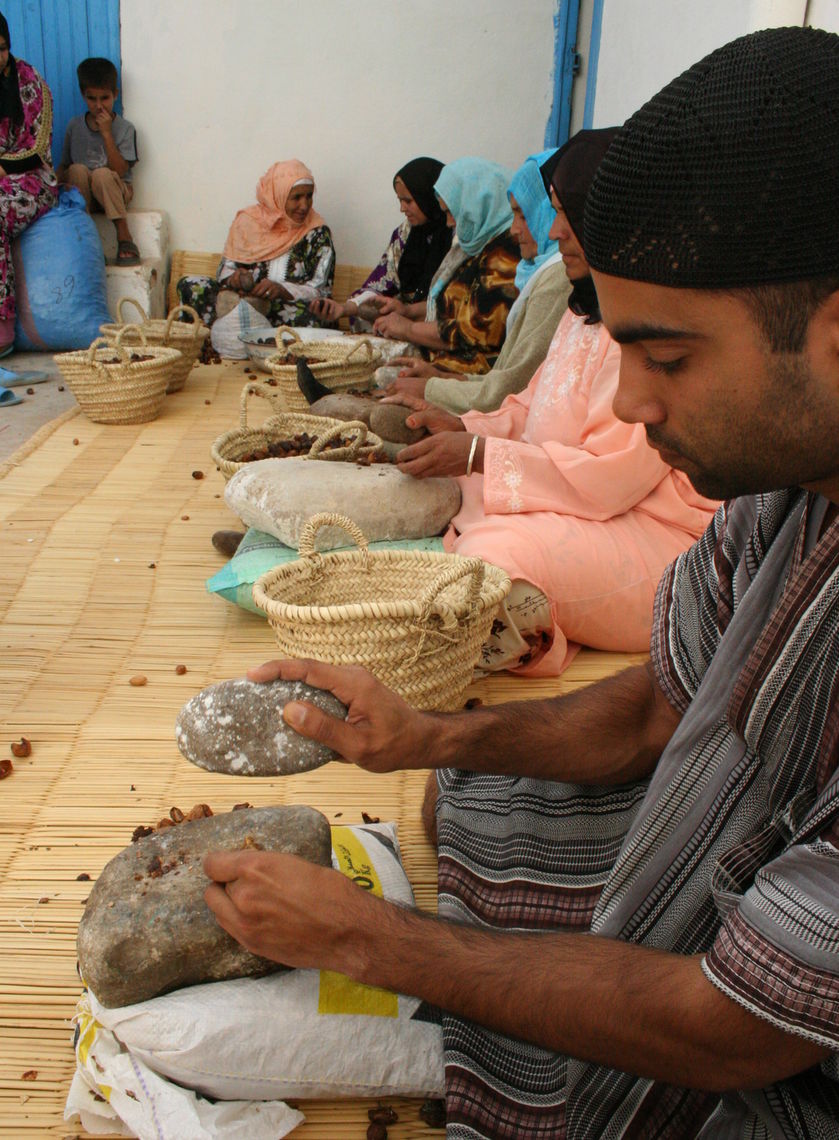
Members of The Argan Tree cooperative busy at the task of extracting argan oil, 2012.
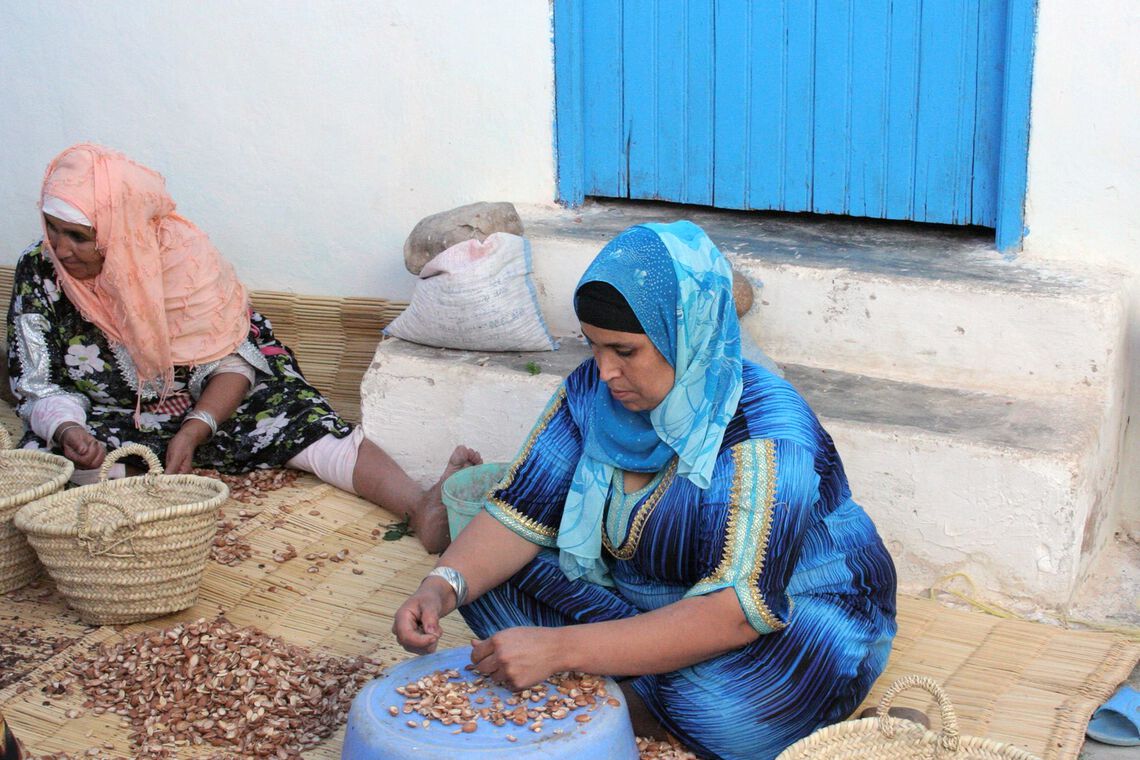
Between the Anti-Atlas mountains and the Sahara desert is an area of Morocco called the Sous Valley. When Zahir Dossa first visited the region many years ago, he found himself fascinated by Argania spinosa, more commonly known as the argan tree, a species endemic to Morocco.
Zahir witnessed Moroccans doing what they’ve been doing for centuries, turning the insides of the argan’s small kernels into oil
to treat their ailments and smooth their skin and hair. The process of producing the oil is onerous; it involves drying, peeling, cracking, grinding, and pressing, and can take up to five weeks.
As an expert in sustainable enterprises, Zahir began looking into the many cooperatives that he saw making and selling the oil and ended up studying them for a year. The cooperatives were a major employer for females in the region, who, Zahir said, generally had a hard time finding work, but Zahir saw a flaw in the model. Often the middlemen liaising between the women and the consumer were taking more than their fair share.
Zahir started The Argan Tree Beauty Cooperative in 2010 with 18 employees. Now he employs 60, all of whom are women. The cooperative is based in Agadir, the capital of the region, and produces a full line of beauty products which are then marketed and sold directly to American consumers online. Driven by a strong social mission, The Argan Tree returns 100 percent of the profits to its producers.
Zahir initially struggled in branding the company and turned to Andy Chen (2010) for help. Andy assisted Zahir in creating a successful brand and marketing strategy.
Currently, Zahir is completing a postdoctoral fellowship at the International Institute for Management Development Business School in Switzerland. He is also coauthoring a book on sustainable business models, and is in the process of developing other ventures. Moving forward, he hopes to continue establishing sustainable projects that contribute to international development.
The Argan Tree is not Zahir’s first startup. He started in Sudan where he cofounded an organization to distribute low-tech, inexpensive irrigation pumps to low-income farmers. Although that venture eventually failed because of the Darfur crisis and the political upheaval in Sudan, Zahir remained persistent in his pursuits to establish sustainable enterprises, which is ultimately what led him to Morocco.
Zahir credits his upbringing and immigrant experience for instilling in him the values that guide his vision today. As a Canadian American raised in Texas by parents of Indian heritage who had settled in Tanzania and then fled during the socialist regime, he understands the value of having opportunities. His goal is to give that same opportunity—to achieve whatever one desires—to as many people as possible.
Article by Amal Elbakshar (2015), JD candidate at Harvard University
Vida
Cofounded by Connie Chen (2008 Fellow)
Connie Chen (2008 Fellow) cofounded Vida and now serves as the organization's chief medical officer. Background photo: Giuseppe Milo.

Seeing one patient at a time is certainly important work, but are there ways to deliver health care on a broader scale? This is a question that Connie Chen has relentlessly pursued in making the leap from clinical medicine to health care entrepreneurship. It is also the question that underpins Vida, an organization Connie cofounded and of which she now serves as chief medical officer.
Vida is a model of health care with four key components: a mobile app that provides a platform for health education and tracking health data points, a national network of coaches who build relationships with patients, a library of clinical programs, and a novel web-based technology to better track interactions between coaches and their patients. Vida breathes new life into the old problem of promoting behavior change, healthy lifestyles, and treatment adherence in the management of chronic disease. Taking advantage of technology, the health startup makes health care part of its clients’ everyday lives, rather than something that is punctuated by huge gaps of time between doctor’s visits. Not all the coaches are doctors; in fact, the majority hail from varied backgrounds such as nutrition, exercise physiology, personal training, and nursing. But they all share “empathy toward the realities of what it means to be chronically ill in this country,” Connie said.
Vida’s ability to serve a wide swath of the population and solve previously intractable problems in the field of health care delivery is what most excites Connie about her position. Growing up as a second-generation Taiwanese immigrant, she was deeply influenced by her maternal grandfather’s career in medicine. He was born in a rural part of Taiwan and became one of the first surgeons in the area. Though he was offered numerous positions to lead hospitals in the big city, he chose instead to dedicate his life to growing a small program in his hometown.
Like her grandfather, Connie has been faced with tough choices. Perhaps the hardest thus far has been choosing to focus her energy on a startup rather than practicing medicine as a doctor. When she was a freshman at Harvard, Connie took Paul Farmer’s global health seminar, which inspired her to pursue medicine and health policy in order to understand barriers to health care access and essential-medicines diseases such as HIV/AIDS. But it was at the University of California, San Francisco, where she attended medical school as a Paul & Daisy Soros Fellow, that she was exposed to the possibilities of making an impact on patients’ lives outside the clinic. She worked for HealthTap in its early stages, helping to democratize access to health knowledge via an online platform. She was floored when over 10,000 doctors had written 100,000 tips and answers. This was her first real introduction to the “culture of making things.”
The partnerships that formed Vida emerged during Connie’s time as a resident in internal medicine at Stanford University. It was there that she was immersed in the burgeoning Health 2.0 movement and the culture of innovation. Leaving clinical training was not an easy decision. Ultimately, however, it was the desire for impact on a larger scale that prompted her to take her skills into the startup world. “We’re at a unique time in digital health, with the Affordable Care Act, lots of discussion about value-based care, and changes to the way providers are delivering care in this country.” And Connie, through her startup Vida, plans to be at the frontlines of that transformation.
Article by Amrapali Maitra (2013), MD/PhD candidate in anthropology at Stanford University
© 2024
